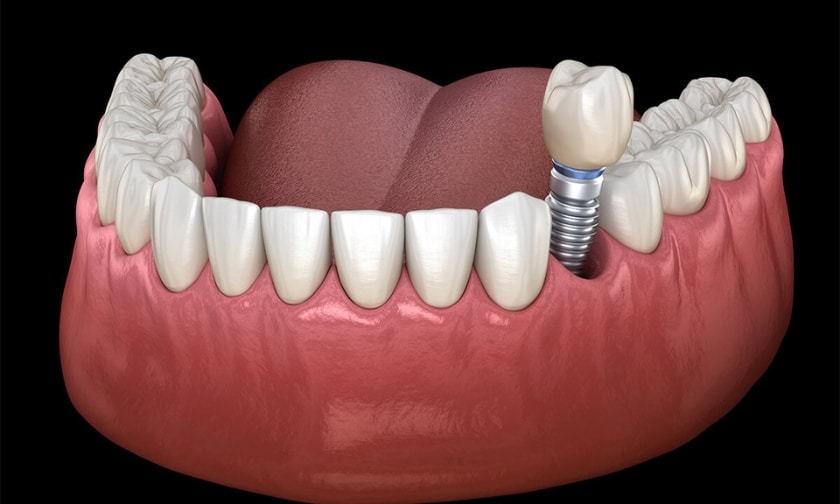5813 Centre Ave, Pittsburgh, PA 15206

Did you know that over 3 million Americans have dental implants, with that number growing by 500,000 each year? As the popularity of implants rises, understanding who should perform the placement is crucial. Choosing a qualified professional significantly impacts the success of the procedure and the long-term health of the patient.
This blog will explore the various specialists involved in implant placements, their qualifications, and the factors to consider when selecting a provider. It will also discuss the importance of a collaborative approach to achieve the best outcomes for patients seeking implants.
Understanding Dental Implants
What Are Dental Implants?
Dental implants are artificial tooth roots placed in the jawbone. They provide a stable foundation for replacement teeth, enhancing both function and aesthetics. The primary purpose of implants is to restore the ability to chew and speak effectively while improving the overall appearance of the smile.
Brief Explanation of the Procedure
The dental implant procedure involves several steps. First, a dentist surgically inserts a titanium post into the jawbone. After this post integrates with the bone, which takes several months, an abutment is attached. Finally, a custom-made crown is placed on the abutment, completing the restoration.
Why People Choose Dental Implants?
Many people prefer implants for their longevity and natural appearance. Unlike dentures, implants do not shift or require messy adhesives. They also help maintain jawbone integrity, preventing bone loss. Implants offer a more permanent and reliable solution than other tooth replacement options.
Types of Professionals Involved
Oral Surgeons
Oral surgeons specialize in surgical procedures involving the mouth and jaw. Their role in implant placement includes performing the surgery to place the titanium post into the jawbone.
They possess advanced training in anesthesia and surgical techniques, which can make the procedure safer and more comfortable for patients. Choosing an oral surgeon often means a smoother and more precise implant placement.
Periodontists
Periodontists focus on the health of the gums and supporting structures of the teeth. They play a vital role in preparing the gum tissue for implants. Their expertise ensures that the surrounding gum health supports the implants. This is particularly important for patients with gum disease or those needing bone grafting.
General Dentists
General dentists often receive training in implant placement as part of their education. They can perform straightforward implant placements, especially if the case is uncomplicated.
However, it is essential to consider their experience and comfort level with implant procedures. For more complex cases, they may refer patients to specialists like oral surgeons or periodontists.
Prosthodontists
Prosthodontists specialize in restoring and replacing teeth. Their role in the implant process focuses on designing and placing the final crown on the implant. They ensure that the artificial tooth matches the patient’s natural teeth in shape and color. Their training helps create a seamless, natural appearance that enhances the smile.
Factors Influencing the Choice of Professional
Complexity of the Case
The case’s complexity significantly influences who should perform the dental implant placement. Simple cases may only require a general dentist with implant training. However, complicated cases, such as those needing bone grafting or dealing with gum disease, often require the expertise of oral surgeons or periodontists.
Patient’s Health Status
A patient’s overall health can impact the choice of a professional. Those with chronic conditions like diabetes or heart disease may face increased risks during surgery. Specialists like oral surgeons or periodontists can better manage these risks due to their extensive training and experience.
Availability of Technology
The availability of advanced imaging and surgical tools can also dictate who performs the procedure. Professionals accessing state-of-the-art technology can provide more accurate diagnoses and better treatment outcomes. For example, 3D imaging can help in planning the placement of implants more precisely, making it essential for complex cases.
The Importance of a Multidisciplinary Approach
Collaboration Among Specialists
Collaboration among specialists leads to better outcomes for dental implant patients. By working together, oral surgeons, periodontists, general dentists, and prosthodontists can address all aspects of the treatment plan. This teamwork ensures a comprehensive approach, optimizing patient care.
Role of the Dental Team
The dental team’s coordination is crucial for successful implant placement. Effective communication between the team members allows for seamless transitions between different stages of treatment. Each professional’s unique skills contribute to a well-rounded approach, enhancing the patient’s overall experience and satisfaction.
Choosing the right professional for implant placement is vital for successful outcomes. Patients must consider the type of case, health status, and available technology when making this decision. A multidisciplinary approach ensures comprehensive care that can lead to the best results. If you are considering implants, consult with our qualified dental professional today. We can guide you through the process and help you find the best options tailored to your needs.



